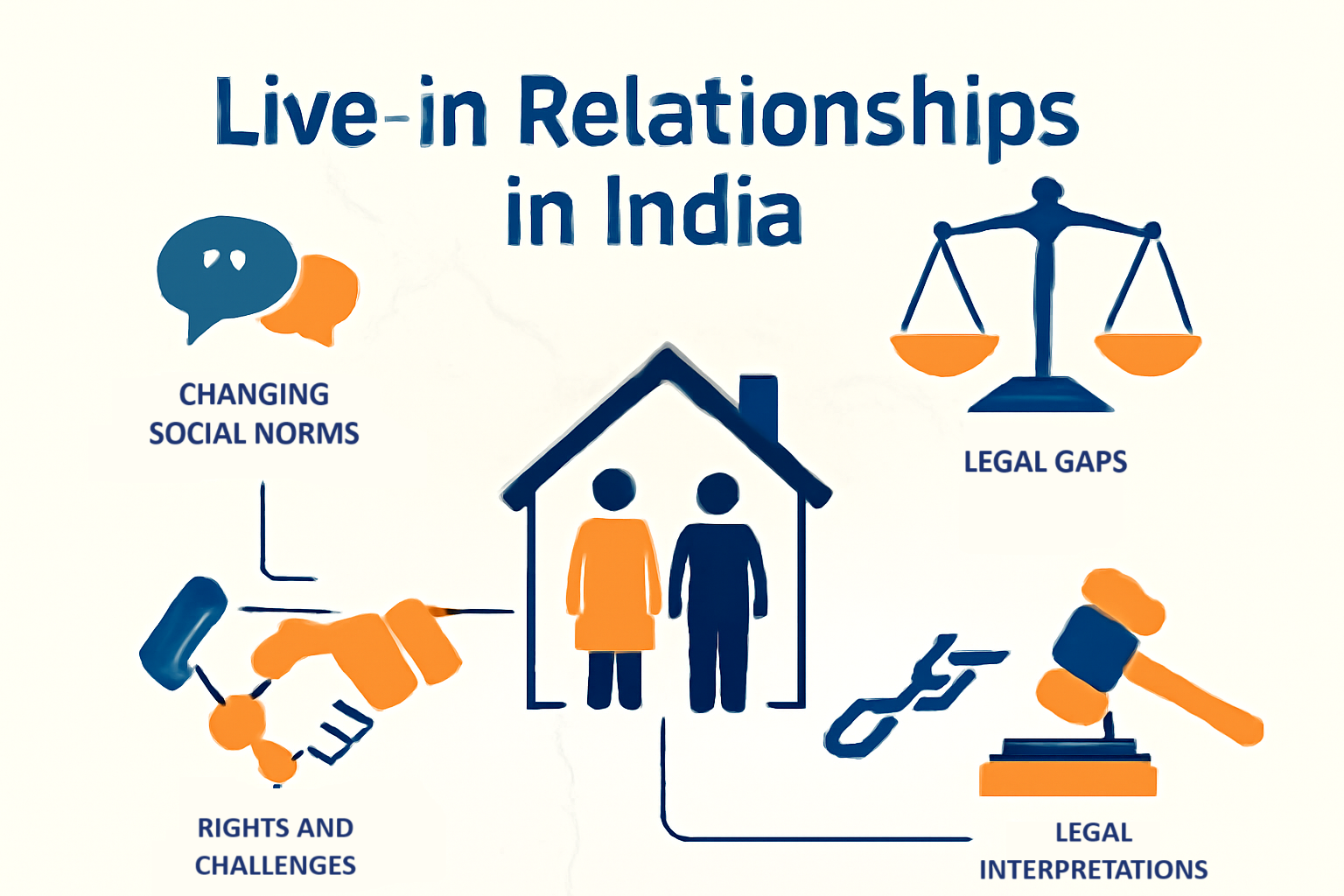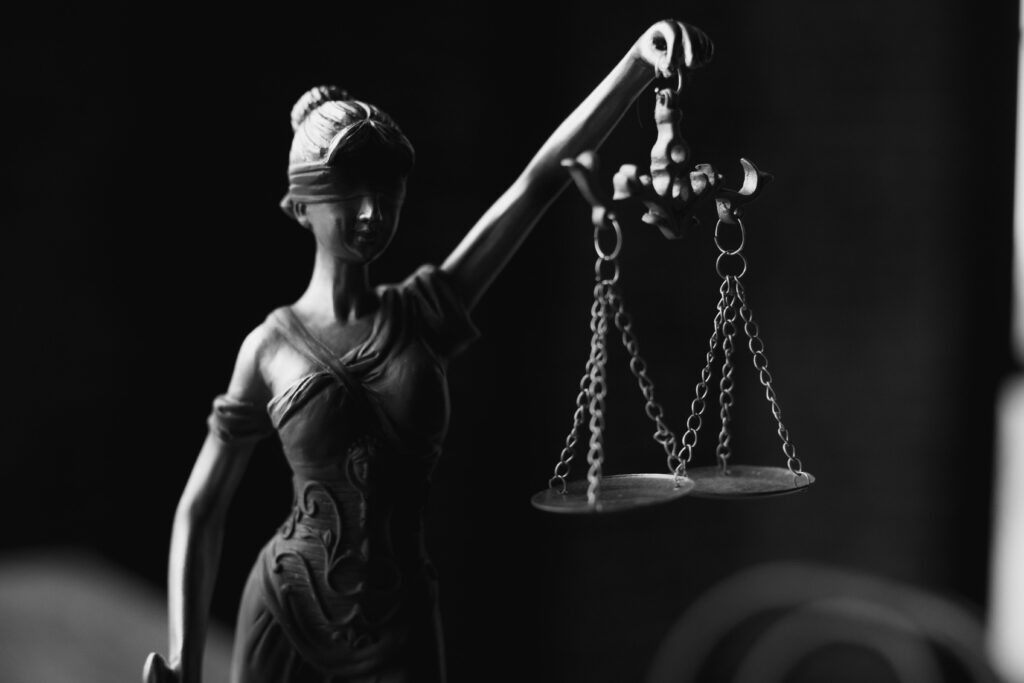Published On: November 3rd 2025
Authored By: Abhiraj Verma
Dr. B.R. Ambedkar National Law University, Sonepat
Abstract
This article examines the intersection of human rights and armed conflict, evaluating the International Criminal Court’s (ICC) role in upholding accountability and justice. It discusses the complementary nature of human rights law and international humanitarian law, the persistent challenges of enforcement in conflict settings, and the ICC’s emergence as a central institution for prosecuting grave international crimes. Through case studies, the article illustrates the ICC’s impact and limitations, including jurisdictional restrictions and dependence on state cooperation. It concludes that, despite its shortcomings, the ICC remains a vital symbol of the global commitment to human rights, requiring continued reform and collaboration to realize its full potential in an evolving landscape of armed conflict.
Introduction
For centuries, war has been synonymous with chaos, suffering, and the erosion of human dignity. Even today, as the world becomes more interconnected, civilians remain the primary victims of armed conflicts, enduring unimaginable hardships and grave violations of their basic rights. In the face of such atrocities, the international community has sought ways to enforce accountability and uphold the rule of law. At the heart of this effort stands the International Criminal Court (ICC), a permanent tribunal that exists to investigate and prosecute those responsible for genocide, crimes against humanity, war crimes, and aggression. But how effectively does the ICC protect human rights in armed conflicts? What are its strengths, and what challenges does it face? This article explores the intricate relationship between human rights and armed conflict, the evolving legal framework that governs them, and the ICC’s unique — and sometimes controversial — role as a guardian of justice in times of war.
The Intersection of Human Rights and Armed Conflicts
Human rights are typically thought of as guarantees for peaceful societies, yet armed conflicts represent some of the greatest threats to these guarantees. In war, civilians are often subjected to killings, torture, sexual violence, forced displacement, and disappearances. International instruments like the Universal Declaration of Human Rights (UDHR)[1] and the International Covenant on Civil and Political Rights (ICCPR)[2] were drafted with the understanding that even in times of crisis, basic rights must be protected. Yet, in practice, the outbreak of conflict tests the resilience of these norms.
At the same time, international humanitarian law (IHL) — often known as the law of war — lays down detailed rules for the conduct of hostilities, distinguishing between combatants and civilians and seeking to minimize suffering. The Geneva Conventions of 1949 and their Additional Protocols[3] provide the backbone of IHL, but these rules are all too rarely followed in reality. In today’s conflicts, with their blurred lines between state and non-state actors, and with the proliferation of weapons technologies, the challenge of protecting human rights becomes even more complex.
Importantly, human rights law and IHL are not mutually exclusive. Instead, they coexist, overlapping and reinforcing each other. As the United Nations and international courts have repeatedly affirmed, human rights law does not simply disappear when war breaks out; rather, it continues to apply, complementing and supplementing IHL. For example, while IHL may regulate the use of force and the protection of prisoners, human rights law provides broader guarantees against arbitrary detention, inhumane treatment, and violations of the right to life — even in the heat of battle.
The Challenges of Enforcement
Despite a robust legal framework, enforcing human rights in armed conflicts is fraught with difficulty. Governments, armed groups, and sometimes even international actors themselves are often reluctant to hold violators accountable. National courts may be unable or unwilling to prosecute, particularly when powerful actors are involved or when the judicial system has collapsed. Sovereignty is frequently cited as a shield against international intervention, and political considerations can trump the pursuit of justice.
Moreover, non-state armed groups, which are increasingly prominent in modern conflicts, often operate outside the bounds of both domestic and international law, with little incentive to comply with humanitarian norms. The absence of a global police force means that international law relies heavily on the goodwill of states, which may be in short supply during or after a conflict. Even when evidence of atrocities is overwhelming, bringing perpetrators to justice can be a monumental task.
The Emergence of the International Criminal Court
It was against this backdrop that the idea of a permanent international tribunal gained traction in the late 20th century. The horrors of the Second World War spurred the creation of the Nuremberg and Tokyo tribunals, but it was the atrocities in Rwanda and the former Yugoslavia in the 1990s that galvanized global opinion and led to the establishment of the ICC. The Rome Statute[4], adopted in 1998, marked a turning point in the international community’s commitment to individual criminal accountability.
The ICC, which began operations in 2003, is tasked with prosecuting individuals — not states — for the gravest crimes of concern to the international community: genocide, crimes against humanity, war crimes, and, since 2010, the crime of aggression. Its jurisdiction is complementary, meaning it steps in only when national courts are unwilling or unable to act, aiming to fill the gap left by the absence of effective domestic justice.
The ICC’s Role in Upholding Human Rights
The ICC’s mandate directly supports the protection of human rights in several ways. First, by holding individuals criminally responsible for mass atrocities, it seeks to deter future violations. The prospect of prosecution, even for leaders and high-ranking officials, sends a powerful message that impunity is not assured. While deterrence is difficult to measure, the ICC’s indictments have, in some cases, altered the behavior of armed groups and governments. Second, the ICC provides a forum for victims to seek justice and reparations. Unlike previous tribunals, the Rome Statute⁴ explicitly recognizes the rights of victims to participate in proceedings and to receive redress for their suffering. This represents a significant advance in the international legal order, acknowledging not only the need for punishment but also for healing and restoration.
Third, the ICC reinforces universal norms against mass atrocities. By prosecuting war crimes, crimes against humanity, and genocide, it underscores the global consensus that certain acts are intolerable under any circumstances. In doing so, it helps to shape the behavior of both states and non-state actors, encouraging respect for human rights even in the context of conflict.
Case Studies: The ICC in Action
The ICC’s impact can be seen in its investigations and prosecutions. In Uganda, the court issued arrest warrants for leaders of the Lord’s Resistance Army (LRA)[5], including Joseph Kony[6], for crimes including murder, rape, and the abduction of children. While these warrants remain outstanding, they have put pressure on the group and drawn international attention to the plight of victims.
In the Democratic Republic of Congo (DRC), the ICC prosecuted Thomas Lubanga[7] for the war crime of enlisting and conscripting children under the age of 15 and using them to participate actively in hostilities. This landmark case highlighted the brutal exploitation of children in armed conflict and set a precedent for future prosecutions.
In Darfur, Sudan, the ICC issued arrest warrants for former President Omar al-Bashir on charges of genocide, crimes against humanity, and war crimes. This was the first time the court had sought to prosecute a sitting head of state, signaling that no one is above the law. However, the lack of enforcement due to limited cooperation from states also exposed the ICC’s dependence on political will.
Limitations and Criticisms
Despite its achievements, the ICC faces significant limitations. Its jurisdiction is limited to crimes committed after 2002 and to situations involving states that have ratified the Rome Statute⁴ or those referred by the UN Security Council. As a result, major powers such as the United States, China, and Russia — which are not parties to the statute — fall largely outside its reach. This has led to accusations of selective justice and even neo-colonialism, particularly given the concentration of investigations in Africa.
Enforcement remains a persistent challenge. The ICC has no police force and relies entirely on member states to arrest suspects and enforce its decisions. When governments refuse to cooperate — as has been the case with Sudan and, at times, with African Union members — the court’s effectiveness is severely compromised.
Resource constraints, lengthy and complex proceedings, and the difficulty of gathering evidence in conflict zones also hamper the ICC’s work. Additionally, the ICC’s focus on individual criminal responsibility does not address the root causes of conflict, such as poverty, inequality, and political exclusion, which often fuel violence and human rights abuses.
The Future of the ICC and Human Rights in Armed Conflict
Looking ahead, the ICC’s role in protecting human rights in armed conflict will depend on several factors. Greater universality of the Rome Statute would expand the court’s reach and legitimacy. Stronger cooperation among states, including more consistent support for investigations and arrests, is essential. Institutional reforms to streamline procedures, protect witnesses, and support victims could enhance the court’s effectiveness.
At the same time, the ICC is only one part of a broader ecosystem of justice. National courts, regional bodies, truth commissions, and reparations programs all have important roles to play alongside the ICC. Strengthening the links between these mechanisms could create a more comprehensive and resilient system for the protection of human rights, even in the most challenging circumstances.
Conclusion
Human rights are most at risk during armed conflict, yet it is precisely in these moments that their protection is most vital. The International Criminal Court represents a bold attempt to enforce accountability and uphold the rule of law in the face of mass atrocities. While its work is not without controversy or limitation, the ICC has brought attention to grave violations, given voice to victims, and reinforced the global consensus against impunity.
The journey toward justice in times of war is long and arduous, but the ICC stands as a symbol of hope — a reminder that even in the darkest hours, the international community has not abandoned its commitment to human dignity and the rule of law. As conflicts evolve and new challenges emerge, the ICC’s ability to adapt and respond will be crucial in ensuring that human rights are not just lofty ideals, but living promises for all people, everywhere.
The Way forward
|
Area |
Proposed Action |
|
Universal Jurisdiction |
Broaden the ICC’s reach through new ratifications and engagement with non-member states. |
|
State Cooperation |
Strengthen enforcement mechanisms and use regional organizations to ensure compliance. |
|
ICC Reform |
Shorten proceedings, protect witnesses, enhance victim participation, and invest in technology. |
|
National Capacity Building |
Support domestic courts in prosecuting international crimes at home. |
|
Engagement with Non-State Groups |
Develop legal and diplomatic tools to promote compliance by all parties to conflict. |
|
Root Causes |
Integrate justice efforts with broader peacebuilding and development strategies. |
|
Public Awareness |
Educate global, regional, and local communities about the ICC and accountability. |
|
Multilateralism |
Foster inclusive, representative governance of international justice institutions. |
References
- Universal Declaration of Human Rights, G.A. Res. 217A (III), U.N. Doc. A/810 at 71 (Dec. 10, 1948).
- International Covenant on Civil and Political Rights, Dec. 16, 1966, 999 U.N.T.S. 171.
- Geneva Conventions, Aug. 12, 1949, 75 U.N.T.S. 31.
- Rome Statute of the International Criminal Court art. 5, adopted July 17, 1998, 2187 U.N.T.S. 90.
- Prosecutor v. Kony, ICC-02/04-01/05 (July 8, 2005).
- Prosecutor v. Lubanga, ICC-01/04-01/06 (Mar. 14, 2012).
- Prosecutor v. Al Bashir, ICC-02/05-01/09 (Mar. 4, 2009).
[1] Universal Declaration of Human Rights, G.A. Res. 217A (III), U.N. Doc. A/810 at 71 (Dec. 10, 1948).
[2] International Covenant on Civil and Political Rights, Dec. 16, 1966, 999 U.N.T.S. 171.
[3] Geneva Conventions, Aug. 12, 1949, 75 U.N.T.S. 31.
[4] Rome Statute of the International Criminal Court art. 5, adopted July 17, 1998, 2187 U.N.T.S. 90.
[5] Prosecutor v. Kony, ICC-02/04-01/05 (July 8, 2005).
[6] Prosecutor v. Lubanga, ICC-01/04-01/06 (Mar. 14, 2012).
[7] Prosecutor v. Al Bashir, ICC-02/05-01/09 (Mar. 4, 2009).




